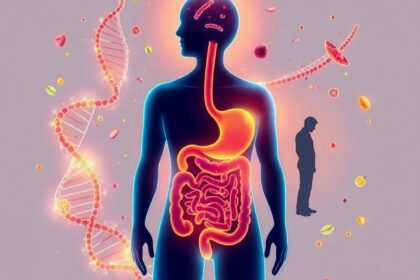Recent research reveals ferroptosis, an iron-dependent cell death mechanism, as a key factor in age-related muscle loss, with potential therapies targeting lipid peroxidation. A 2023 study in ‘A...
Dietary Interventions and Supplements Gain Traction in Managing Breast Cancer Treatment Side Effects
Recent clinical trials and patient reports highlight dietary strategies like the Mediterranean diet and omega-3 supplements for alleviating aromatase inhibitor-induced joint pain, amid calls for impro...
Recent advances in nutrigenomics and microbiome research show how dietary interventions can complement conventional RA treatments, offering new hope for patients. Cutting-edge research reveals how per...
A new clinical trial explores time-restricted eating for Huntington’s disease, building on recent research showing benefits for mitochondrial function and autophagy. A groundbreaking clinical trial ...
Exploring the role of omega-3s, vitamin D, and personalized diets in managing aromatase inhibitor side effects for breast cancer patients. Emerging research shows targeted dietary strategies can signi...
Emerging research shows personalized dietary interventions can significantly reduce side effects and improve adherence to breast cancer endocrine therapy. New AI-driven nutrition strategies and microb...
Exploring how diet and supplements can alleviate aromatase inhibitor-induced arthralgia and improve quality of life for breast cancer patients. Emerging research reveals how targeted nutritional inter...
Recent studies highlight dietary interventions like omega-3 fatty acids and vitamin D for managing aromatase inhibitor-induced arthralgia in ER+ breast cancer patients. New research supports dietary i...
New research shows personalized diets and targeted supplements significantly improve outcomes for breast cancer patients undergoing endocrine therapy, reducing side effects and enhancing quality of li...
Emerging research suggests time-restricted feeding may improve symptoms and slow neurodegeneration in Huntington’s disease through circadian rhythm synchronization and enhanced autophagy. New cl...










